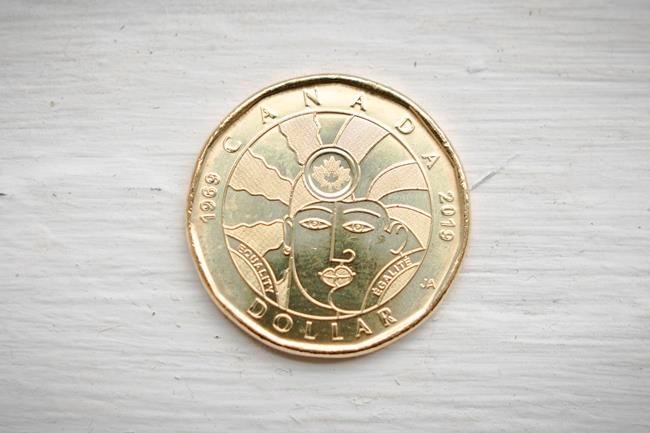TORONTO — Canada's main stock index moved to within two per cent of a record high Monday on gains in the materials and technology sectors.
Gold and silver prices increased, partly on expectations that U.S. politicians will agree to additional fiscal stimulus, said Angelo Kourkafas, analyst on the investment strategy team at Edward Jones.
In addition, there are renewed geopolitical concerns about ongoing Brexit negotiations ahead of Wednesday's deadline and the potential for new U.S. sanctions on Chinese officials over the crackdown on Hong Kong.
The February gold contract was up US$26.00 at US$1,866.00 an ounce and the March copper contract was down 0.8 of a cent at almost US$3.52 a pound.
Materials rose 2.1 per cent as shares of Oceanagold Corp. surged 31.9 per cent while Kinross Gold Corp. were up 7.5 per cent.
The improved performance of Canada's technology sector and the tech-heavy Nasdaq composite in the U.S. were attributable to worsening coronavirus trends and lockdowns on both sides of the border, Kourkafas said.
"The focus and the market's attention ... is looking forward for the vaccine potential distribution. And that continues to be the main driver of sentiment," he said in an interview.
Canadian and U.S health regulators are expected to soon grant emergency authorization for at least two vaccines presented by Pfizer and Moderna. A third vaccine has also been developed by AstraZeneca.
Technology rose 1.3 per cent with shares of Shopify Inc. up 2.9 per cent.
"We have seen this kind of tug-of-war between vaccine optimism and worsening coronavirus trends and clearly the focus now, especially in the U.S., is turning to the negotiations in Washington."
The S&P/TSX composite index closed up 61.38 points to 17,582.35. It hit an intraday high of 17,611.48 that is less than two per cent or 359 points below February's record high.
In New York, the Dow Jones industrial average was down 148.47 points at 30,069.79. The S&P 500 index was down 7.16 points at 3,691.96, while the tech-heavy Nasdaq composite was up 55.72 points at 12,519.95.
The Canadian dollar was unchanged from Friday at 78.12 cents US.
The January crude contract was down 50 cents at US$45.76 per barrel and the January natural gas contract was down 16.9 cents at nearly US$2.41 per mmBTU.
Lower prices pushed the energy sector down 0.9 per cent with Tourmaline Oil Corp. off 5.1 per cent. The price fall is attributable to concerns about demand as new restrictions in movement translates into lower demand for travel and a pullback after last week's strong oil price gains.
"So we're seeing kind of that effect of the renewed restrictions show up in a little bit of a loss of momentum in the economic data. And we expect that to likely persist for the remainder of the year and likely the first quarter of next year," said Kourkafas.
This report by The Canadian Press was first published Dec. 7, 2020.
Companies in this story: (TSX:SHOP, TSX:OGC, TSX:K, TSX:GSPTSE, TSX:CADUSD=X)
Ross Marowits, The Canadian Press



